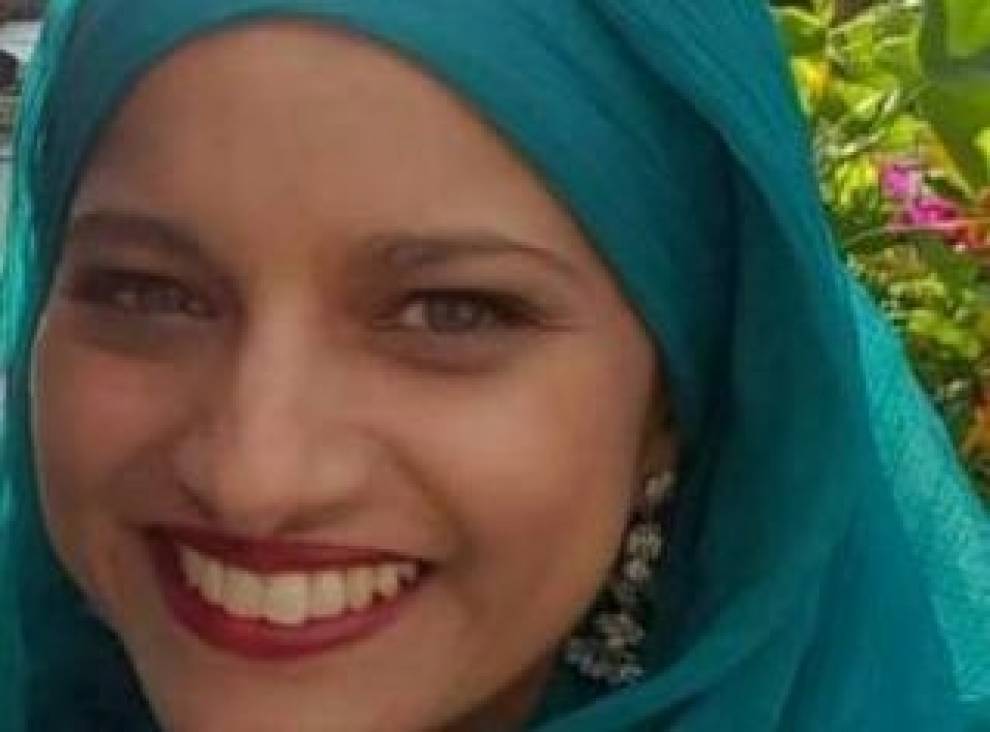"Equity to me means to provide the resources and opportunities and encouragement for an individual to personally achieve success." Dr Atia Rafiq, Computer Science Lecturer
 What is your job role and how long have you worked at UCL?
What is your job role and how long have you worked at UCL?

GP, GP trainer, Clinical safety officer, Advisor for the Industry Exchange Network (IXN) for the NHS and Honorary Lecturer at UCL Computer Science, specialising in Computer Science with Healthcare.
What do you do in your job role?
I look after patients, train medical doctors, advise governance and national strategies for technology adoption and proof of concept clinical systems design. I review projects for Computer Science students.
What’s the best thing about working in the Computer Science department?
The best thing about the department is the enthusiasm and commitment of the staff towards making positive changes in the world. I have worked with amazing people who have a passion for education and innovation.
Working with people who have a different view, a futuristic view of what is possible and who can make my ideas a reality or solve problems a face in my daily work, is awe-inspiring.
What challenges have you had in your career and how did you overcome them?
As an Asian woman wearing a headscarf, there have been many challenges in progressing through my career. The main one is people’s expectations of what I can and cannot do.
To overcome this I have had to convince a lot of men that I can speak English, I am competent, intelligent and funny. I have done this by being myself and not kowtowing to authority.
I have been called ‘a bit of a boy,’ which I find difficult to fathom. Just because I have enjoyed building, fixing, and cars does not make me less of a girl. I have had to explain this to a lot of people over the years.
What things do you wish you’d known before starting your career?
I wish I had the courage and confidence to push myself and meet those challenges earlier in life at school and universityy. Being from a traditional Asian background, everyone around me took a certain path and I found it difficult to beat my own path.
As I matured it became clearer to me what I needed to do, but I feel had I been mentored in my youth I may have achieved these outcomes sooner.
What advice do you have for people who want to do what you do?
It starts with wanting to help people and sometimes that will be helping individuals but sometimes it will be changing or creating processes that helps many people.
When faced with a problem, you may not know about the technology that will make the change, but some other clever person does.
Find that person (for me that person was Professor Dean Mohamedally), and make yourself part of the machine that brings about change.
What’s the best thing about your job?
Seeing the positive outcomes for patients and seeing my trainees and students succeeding.
What does equity mean to you?
Equity to me means to provide the resources and opportunities and encouragement for an individual to personally achieve success.
I feel this needs to start very early in life, before school. When babies are born, shops already promote a certain mindset for girls and a different mindset for boys.
The toys in the shops are arrange by gender, with the innovation and engineering toys in the boy’s isle and the caring and household toys in the girl’s isle.
We automatically treat girls and boys differently, using words like ‘clever’ for boys and ‘pretty’ for girls. We are telling them from birth which paths to take.
To challenge this requires taking the more difficult path. So, when we promote engineering for girls at secondary school and university, we have already missed the boat.
What is the best advice you have ever been given?
Don’t let anyone tell that you can’t. Miss Bullimore, Secondary School teacher.
Who inspires you and why?
My mother. She alone brought up four children and challenged the world, broke conventions and she didn’t let anyone tell her she couldn’t.
What professional achievement are you most proud of and why?
My biggest achievement is finding a profession I love. I feel I have been led through life and given opportunities, and now find myself unable to imagine doing anything different.
As Henry Higgins says in Pygmalion ‘Happy in the man who can make a living by his hobby.’ I have always likes solving problems, and now I get paid for it.
Where would you like to be in 5 years?
In 5 years, I hope to see more projects become a reality and real innovation in health care. These difficult times have forced certain changes and I hope they will be adopted by the medical communities.
 Close
Close

